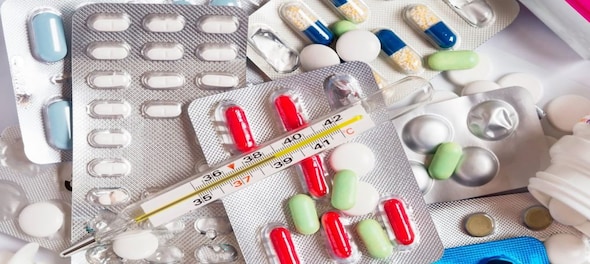
A bunch of pharma firms, including Dr Reddy's, Teva, and Sun Pharma, that manufacture the generic versions of the common antacid drug Zantac have agreed to pay more than $500,000 together to a man named Joseph Bayer in the US.
Bayer alleged that the heartburn drug launched by GSK in 1983 and sold without a prescription since 1995 caused his oesophageal cancer. The settlement came a week before the trial, and one of the reasons cited was that Bayer had to return to the hospital for cancer treatment.
This case puts the spotlight back on concerns that this 40-year-old drug, which at a time was the world’s bestselling drug, topping $1 billion in sales, causes cancer.
The point of contention has been that the active ingredient in the ranitidine drug degrades and turns into a carcinogenic called NDMA, for example, in hot, humid conditions. Researchers have linked this drug to multiple cancers, including bladder and colon cancer.
India never banned the drug
Because of concerns about the presence of NDMA, drug regulators of the US, Canada and Europe stopped the sale of all the branded and generic versions of Zantac from 2019-2020.
India never banned the sale of these drugs despite global concerns. During this time, the Indian drug regulators asked companies to verify the safety of the widely sold antacid, but there was never a blanket ban. GSK, however, recalled their drug Zinetac in India during this time.
Also, contrary to negligible to zero sales in developed markets, in the past 2-3 years, companies selling ranitidine-based drugs in India have seen sales grow. One of the top companies in the country has been selling Rs 200 crore of the brand annually with a growth of 10-12 percent.
Sales boom during COVID
The drug also saw a huge spurt in sales during the second wave of COVID-19. To put it into perspective, one of the top brands in the market saw sales shoot up to around 75 lakh strips a month during the second wave versus the average normal run rate of 50-60 lakh.
So, why is ranitidine still being sold in India when there are global concerns?
A chat with a few gastroenterologists in India revealed that there is a lack of awareness of the concerns around the drug. They continue to prescribe it as always to patients as there has not been any notice from the Indian drug regulators on it.
Also, feedback is that there needs to be a substantial substitute for it. Today, the drug is expected to suppress acid build-up more effectively than a simple antacid. And while the market is shifting to proton pump inhibitors such as omeprazole, ranitidine is a cheaper, more affordable molecule.
Drug firms fight back
While major markets such as the US are still to get back to selling the drug, markets such as Canada have begun sales. Drug companies, in fact, claim that the NDMA levels of the drug are the same that are already found in food.
GSK, in their latest statement, said the USFDA and European Medicines Agency concluded there is no evidence of a causal association between ranitidine and cancer, and the allegation in the latest litigation is inconsistent with scientific evidence.
But, in any case, this will be an interesting space to watch.
While pharma companies have settled with one litigator, there are claims by many others in the US that drug makers knew about the deterioration for years but didn’t stop selling the drug.
First Published: Aug 18, 2022 9:58 AM IST
Check out our in-depth Market Coverage, Business News & get real-time Stock Market Updates on CNBC-TV18. Also, Watch our channels CNBC-TV18, CNBC Awaaz and CNBC Bajar Live on-the-go!


LS polls phase 2: Rahul Gandhi, Shashi Tharoor in fray; Hema Malini, Om Birla eyeing hat-trick
Apr 25, 2024 12:19 PM
UP constituencies to witness three-cornered fight in second phase tomorrow
Apr 25, 2024 10:47 AM
BJP MP's wife challenges him in electoral battle for Etawah seat
Apr 25, 2024 9:39 AM

